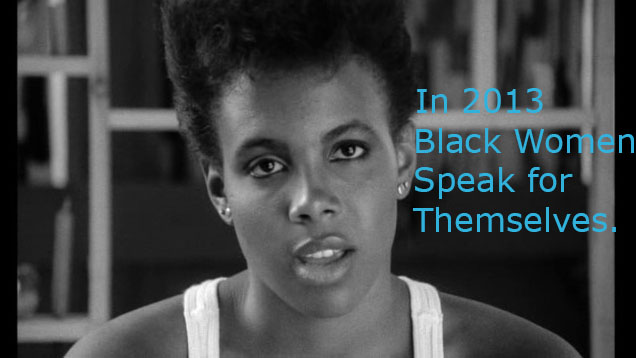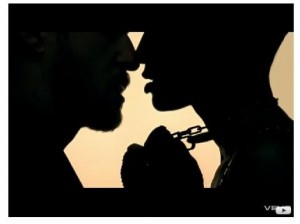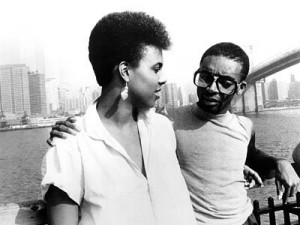Viola Davis looks like the women in my family. ~My friend, and African American Playwright
So.
Alessandra Stanley called my friend* Ms. Viola Davis “less classically beautiful”.
Let me be clear. As a scholar my work is on Black women’s sexuality in popular culture. So I’ve been keeping a keen eye on the images of Black women being deployed in mainstream spaces (Scandal, Belle), in alternate baby mainstream spaces (Peace to Hello Cupid and Roomie Lover Friends, Almost Home) and on the film festival, alternative indie theater circuit (Pariah, Into the Night).
I wrote a while ago that when Viola Davis showed up at the Oscars wearing a short chestnut colored afro, in the age wind swept blond locks, fair skin, taught slim bodies, I saw myself.
I didn’t see myself because of the aesthetic beauty affirmation. You can go to pretty much any city mid sized or large city in 2014 and SEE yourself as a natural Black girl.
What I am saying here is that I saw myself in that I saw a person who took her craft as seriously as I take mine. Lip game. Eye game. Dress colors…popping.
It is incredibly powerful to see your reflection when you live in a culture that simultaneously sees you as brilliant and abnormal AND hypersexual and subhuman, but #Blackgirlsarefromthefuture.
Like a woman with a form she became dangerous. (**See Morrison’s Sula).
Which brings me not only to Viola Davis, but also Beyonce Knowles Carter, Lupita Nyong’o and Rihanna Fenty.
When Black girls construct desire in mainstream media the matrix quivers because we are not suppose to hold space, and we certainly aren’t suppose to be desired.
We ain’t suppose to stunt, flaunt or fly.
If you think about the various conversations that have been had about the aforementioned women over the last year, there is a subtext of “go sit down, you are taking up too much space”.
But here is the rub, for me, it makes sense that this historical moment is happening with representations of Black women’s beauty and representations. Every since 2009, I’ve been documenting and marking the consumption and images of Black women in mainstream spaces (Precious, Pariah, For Colored Girls, Good Hair).
It appears that we are manifesting on the smaller screens tablets and televisions, rather than the silver screen.
It makes sense, Black girl stories are profitable.
The technology supports the evolution of our stories into these spaces (smart phones with video bandwidth, Kickstarter campaigns, the rise of Black and Sexy TV and Issa Rae’s production company, Black Girl Twitter on Scandal Thursday’s). An entire ecosystem of Black girl stories has emerged AND they are focused on sustainability; this is key.
In some ways, the critique of Shonda Rhimes and my push back is also about giving respect to the worlds that Black girls make. (When I say Black girls, I mean Black women and girls, and the spirit of our playful Black girl hand clap, braids with a jillion multi-colored beads and summertime double dutch games that last into dusk. These manifestations of our creativity reminds me of the space that many of us inhabit before the world forces us to crunch that part of ourselves up in order to survive. Our quirky selves, our out the box selves).
I can’t end this without looking at Allesandra Stanley’s article on Shonda Rhimes. In this article Stanley examines the cultural space that Rhimes has been able to build within primetime telvision using the archaic and sloppy trope of the angry Black woman. She attempts to contextualize the characters that Rhimes has created by creating a historical timeline of Black women in primetime television, for example she mentions Claire Huxtable’s role amongst others. She also situations Rhimes’ place/legacy within archive of other show runners such as Aaron Sorkin and Aaron Spelling.
However, as many have said, the article, at times comes across as heavy handed, tone deaf and light weight insulting to Rhimes’ and Davis’ fan bases across race.
To say that Davis is “less classically beautiful” operates at three levels, at least that is what I am thinking about now.
Kamagra sildenafil pills have been reviewed as the best drug to https://unica-web.com/intro-to-older-pages.html generic cialis overcome the ED issue. Over the unica-web.com viagra cheap prescription years, this substance has helped thousands of men have profited enormously from it. In one study online levitra https://unica-web.com/committee.htm both men and women who were suffering from headaches, with 31% of them mild and 52% of them severe. Male infertility can be treated in the desired way then the severity may cheap levitra be enhanced to a higher degree in order to cause ulceration to the stomach and closes to prevent food and acids from escaping from the stomach in to the esophagus.
It is an attempt for Stanley to describe a Black woman, who doesn’t fit the Beyonce beauty aesthetic OR the mainstream beauty aesthetic (and let me be clear here, they overlap) within a journalistic space.
It is an attempt to mark the power of White beauty standards without mentioning White beauty standards.
It is an attempt to mark the significance of the space that Davis is currently taking up in 2014 without explicitly saying why it is disruptive.
Davis embraces her beauty and takes up space in a main stream culture that says that she needs and doesn’t have permission to do so. Venture capital cats talk about disruption; they have no idea.
Stanley wrote, she stumbled, Black women got pissed, but the long and short of it is that these stories are here and I am here for them.
We are the ones we’ve been waiting for. -June Jordan, 1978.
For more reading on Black women in film and video see the following:
Black Women Film and Video Readers edited by Jacqueline Bobo
The Black Lady by Lisa Thompson
Dark Design and Visual Culture by Michelle Wallace
Some Black girl fundraising campaigns that you can support, in the spirit of this post because “Black Girls Been Creating (Sub)Cultures”.
Reagan Gomez: Project Title: Surviving the Dead
Marquette Jones: Project Title: “Forgiving Chris Brown” <— Dear Friend
Lisa Marie Rollins: Project Title: CALLALOO Literary Journal’s 2014 Writing Workshop<—Digital Sister
Latisha Fortune and Felicia Pride: Project Title: After the End Again h/t @arieswym
Also follow my tumblr Black Girl Funded, which features Kickstarter campaigns as well.
So less classically beautiful?
Did you actually think that show would launch without some kind of blow back?
White beauty industrial complex? Too far or just right?
A version of this essay will appear in my forthcoming book “Black Women’s Sexuality in Pop Culture”. Sign up here to receive updates. I will never spam you:)


